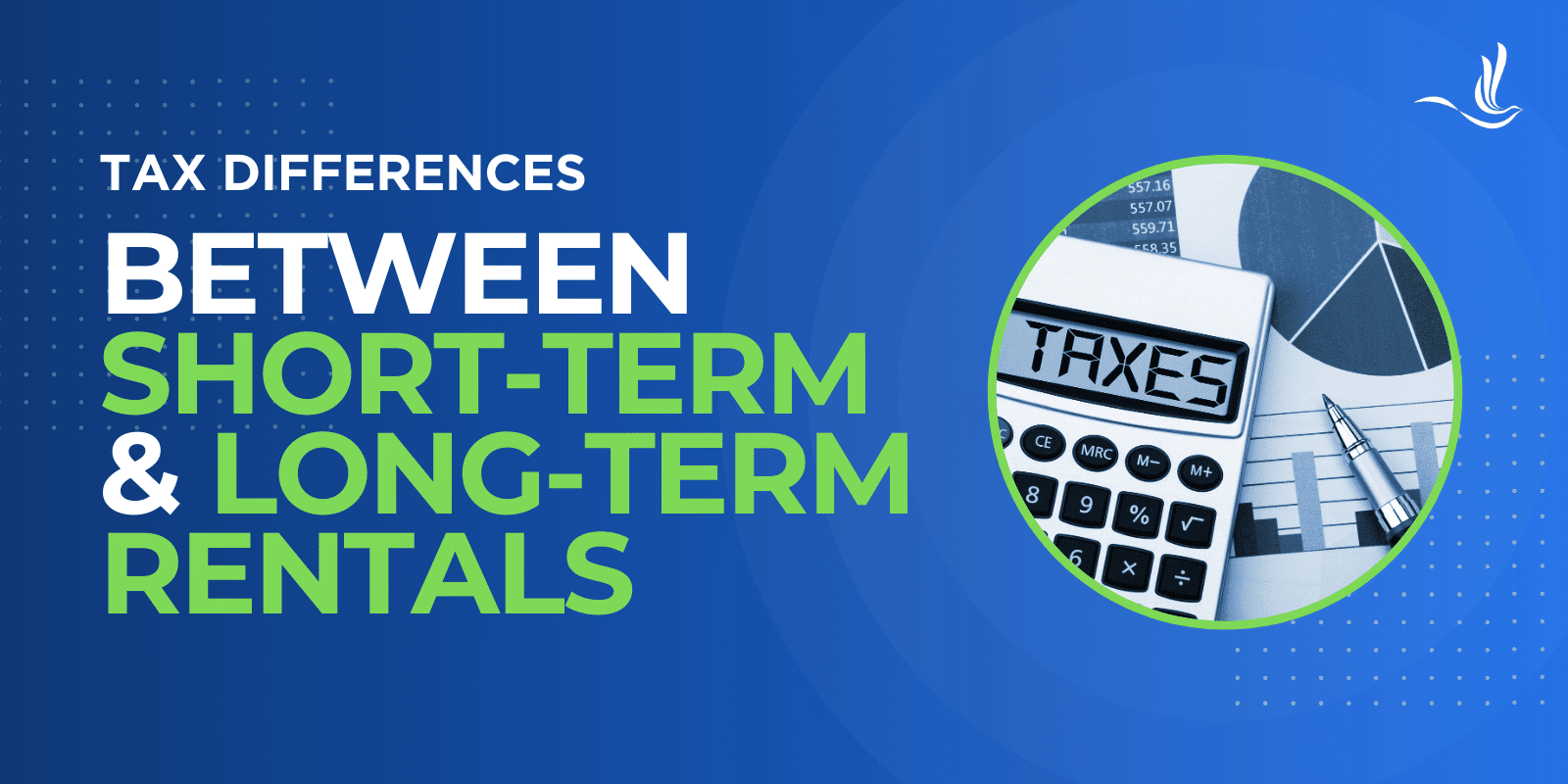The taxation of long-term and short-term rentals can differ significantly. These differences are primarily driven by the distinct nature of these rental arrangements and the objectives of tax authorities. Here’s an overview of the key differences in how long-term and short-term rentals are taxed.
The 14-Day Rule
Under the 14-day rule, if you rent out your primary residence or a second home for 14 days or fewer during the tax year, you are generally not required to report the rental income on your federal income tax return. In other words, the income you earn from these short-term rentals is tax-exempt. To qualify, you must have also occupied the property for at least 14 days.
If you use the 14-day rule you cannot deduct rental-related expenses, such as advertising, cleaning, and maintenance, against that income. However, you can deduct property taxes and mortgage interest paid. The 14-day rule is a federal tax provision, and state and local tax laws may vary.
Active vs. Passive Income
If you have a rental property, how you are taxed also depends on whether your income is passive or active.
Passive Rental Income
Usually, rental income is considered passive, meaning it doesn’t require active participation. This is usually the case for long-term rentals in which you might just collect a rent check each month. This income is generally taxed at the same rate as your regular income. In addition, you may deduct operating expenses including advertising, commissions, repairs, maintenance, landscaping, insurance, HOA fees, property taxes, mortgage interest, depreciation, and more. Passive rental income should be reported on Schedule E of Form 1040.
Active Rental Income
There are a few instances in which rental income becomes active. These include:
- If you are classified as a real estate professional (work at least 750 hours in real estate per year, and 50% of work being in real estate)
- If you are renting your property through an LLC or S Corporation
- If you have short-term rentals (STRs) that have an average stay length of 7 days or less
- If you occupy your rental for more than 14 days, or 10% of the number of days the property is rented out
- If you provide “substantial services” to your tenants, including meals, transportation, daily housekeeping, and more.
If one of these scenarios applies to you, your income will likely be considered active in the IRS’s eyes. This means the IRS will consider you to be self-employed and will require you to pay self-employment tax. However, you can deduct up to $25,000 of loss from activity if you are single or married filing jointly. You can deduct up to $12,500 if you are married but file separately. Active rental income and expenses should be reported on Schedule C.
Qualified expenses include rental expenses like advertising, credit checks, and agency fees. You can also deduct general expenses like cleaning fees, repairs, depreciation, mortgage interest, property taxes, utilities, etc. However, you may only deduct a percentage of general expenses that is equal to the occupancy rate for the year. For example, if your rental was occupied for 150 days out of the year, you could deduct 41% of the expenses (150/365).
Tax Help for Those with Rental Income
It’s essential for property owners to be aware of the tax implications associated with their rental activities. Consult with tax professionals or local authorities to ensure compliance with relevant tax laws and regulations. Tax laws can vary significantly by jurisdiction. That said, it’s crucial to stay informed about the specific rules that apply to your rental situation. Additionally, tax laws and regulations can change over time, so regular updates and compliance checks are essential for all rental property owners. Optima Tax Relief is the nation’s leading tax resolution firm with over a decade of experience helping taxpayers with tough tax situations.
If You Need Tax Help, Contact Us Today for a Free Consultation
